The terrorists, who last week staged a series of attacks in the Northern states, including assaulting the Kaduna-Abuja train and ambushing and killing military troops confirmed that undoubtedly, Nigeria is at war. The country is assailed from within by expanding armies of well-armed terrorists and criminals, overwhelming a crumbling security apparatus. The situation is worsened by incompetent governance. It is time to shift to war-footing to save the country from being overrun.
The President, Major-General Muhammadu Buhari (retd.), must act decisively: declare a full-fledged state of emergency in Kaduna immediately and extend this, if necessary, to other besieged states. This is no time for politics.
Sundry criminals are waging a ruthless war against Nigerians. Apart from Boko Haram/ISWAP Islamic terrorists in the North-East and Fulani herdsmen/militants everywhere else, terrorists riding on the back of a separatist agitation are spilling blood in the South-East. Beyond his endless, never-enforced orders to security chiefs, Buhari must take charge.
There should be an effective strategy. The North-West states and Niger, Benue, Plateau in the North-Central are as destabilized as Borno, Yobe, and Adamawa, the epicenter of the Boko Haram/ISWAP Islamist insurgency.
The attacks in Kaduna require full emergency rule in the North-West state. Governor Nasir el-Rufai admitted, “We are in a state of war; this place should be declared a war zone.” Presidential spokesman, Femi Adesina, in a departure from the regime’s perpetual denial mode, echoed this: “They (terrorists) have declared war against the country and its people. We are war, yes, we are!” Many patriots have been saying so before now.
Terrorists on Monday bombed and opened fire on a Kaduna-bound train from Abuja, killing several persons and injuring many others. A day later, they attacked the Gidan Train Station. A week earlier, about 200 terrorists on motorbikes twice had attacked the Kaduna International Airport. A day before, terrorists invaded nine villages in the Giwa Local Government Area, killed 50 people, razed houses, rustled cows, and burnt 30 vehicles.
Brazenly, a few days later, the bandits/terrorists ambushed a military team on the Abuja-Kaduna Highway, killing seven soldiers.
Zamfara, Katsina, Kebbi, Sokoto in the North-West; Niger, Plateau, Benue, Nasarawa, Kogi, and Kwara in the North-Central have been infested by terrorists. Kaduna, home to several military bases, is under siege. Civil society groups said 1,545 persons were killed in the first quarter of this year in Kaduna and neighboring states. Over 5,000 others have been kidnapped in the last two years. Attacks by Fulani herdsmen on Southern Kaduna communities are unrelenting. Bandits have attacked the Nigerian Defence Academy, kidnapped school children en masse, and burnt down communities. Kaduna is indeed a war zone.
Buhari should act or be compelled to do so by Nigerians. First, stop living in denial. As el-Rufai emphasized, this is no ordinary criminality. He fingered Boko Haram in the train assault; terrorists have joined forces with so-called bandits and Fulani herdsmen.
Next, admit that the security system is institutionally incapable of securing the country. Every law enforcement effort, say experts, is local. Immediately, state and local security agencies must be established, equipped, trained, and well-armed to defend lives and property. Ukraine’s people are showing the way how to defend themselves through local volunteer units. The National Assembly should immediately invoke the “doctrine of necessity” to alter the 1999 Constitution to facilitate this.
Buhari can no longer ignore the serial intelligence failures, the poor response, incompetent preparation, and lethargy of the security agencies. The attacks on Kaduna alone should have prompted sackings and resignations by commanders. Responsible leadership elsewhere never tolerates such carelessness or failure in national security matters. The head of the French military intelligence has been sacked for failing to predict Russia’s invasion of Ukraine; President Volodymyr Zelenskyy sacked two generals for laxity in Ukraine’s heroic defensive war.
The State Security Service, the police, and the military have performed poorly, even when allowances are made for institutional constraints. The SSS is too focused on regime critics and self-determination activists against whom it takes very strong measures, including raids, violation of human rights and court orders, and detention. It is strangely less vigorous against the so-called bandits. Its attitude towards Fulani herdsmen/murderers is even more benign.
The military failed to prevent attacks on the airport, its patrols, and bases. The police compound their incompetence by retaining over 70 percent of their field personnel in personal protection duty for VIPs even as civilians and police officers alike are being slaughtered.
There is another more sinister dimension: the failure of security agents to act on actionable intelligence. El-Rufai was blunt: “We know where their camps are, we know where they (terrorists) are; the SSS have their phone numbers, they listen to them, and they give me the report. We know what they are planning. We should be waiting for them to attack; why can’t we go after them?” Buhari and NASS should demand answers from the National Security Adviser, Babagana Monguno, the Director-General of the SSS, Yusuf Bichi, the Inspector-General of Police, Usman Baba, and the military chiefs.
As this newspaper has recommended before, it is time to invoke the constitutional provision for a state of emergency. Desperate situations require desperate legal action. Beginning with Kaduna, a virtual military fortress, Buhari, and NASS should act. Unlike the politically-correct partial emergency in the North-East, this should be a full emergency, requiring elected officials—governors, lawmakers—to stand down.
Section 305 of the 1999 Constitution provides: “The President shall have the power to issue a Proclamation of a state of emergency only when – (a) the Federation is at war; (b) the Federation is in imminent danger of invasion or involvement in a state of war…” The Zamfara State Government estimates that there are about 30,000 “bandits” in the state. One study puts their number in the North-West at about 120,000! Add the estimated 8,000 to 15,000 active Boko Haram/ISWAP fighters and Nigeria seems overwhelmed. Meanwhile, one estimate says that not more than 135,000 personnel—Army, Navy, and Air Force—are available for national defense.
As President, Olusegun Obasanjo 2006 declared a State of Emergency in Ekiti ostensibly to prevent the South-West state from descending into anarchy. Buhari should follow suit to save the country from a demonstrably much more dire existential threat.

 BIG STORY23 hours ago
BIG STORY23 hours ago
 BIG STORY1 day ago
BIG STORY1 day ago
 BIG STORY18 hours ago
BIG STORY18 hours ago
 BIG STORY1 day ago
BIG STORY1 day ago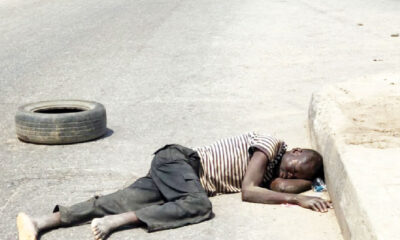
 BIG STORY4 days ago
BIG STORY4 days ago
 BIG STORY3 days ago
BIG STORY3 days ago
 BIG STORY3 days ago
BIG STORY3 days ago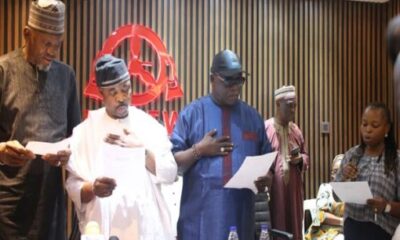
 BIG STORY4 days ago
BIG STORY4 days ago




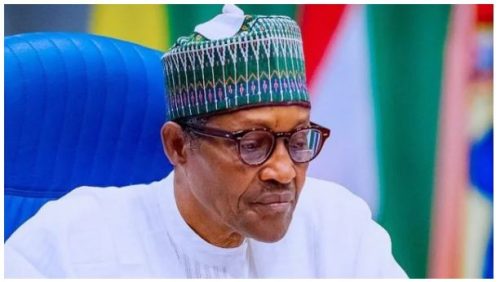




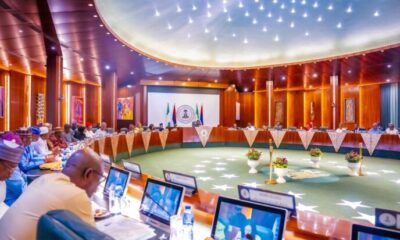

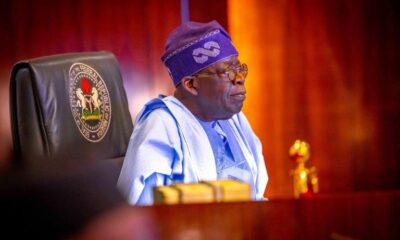











Pingback: Fuel Scarcity: Ministers Resign In Sri Lanka Amid Protests